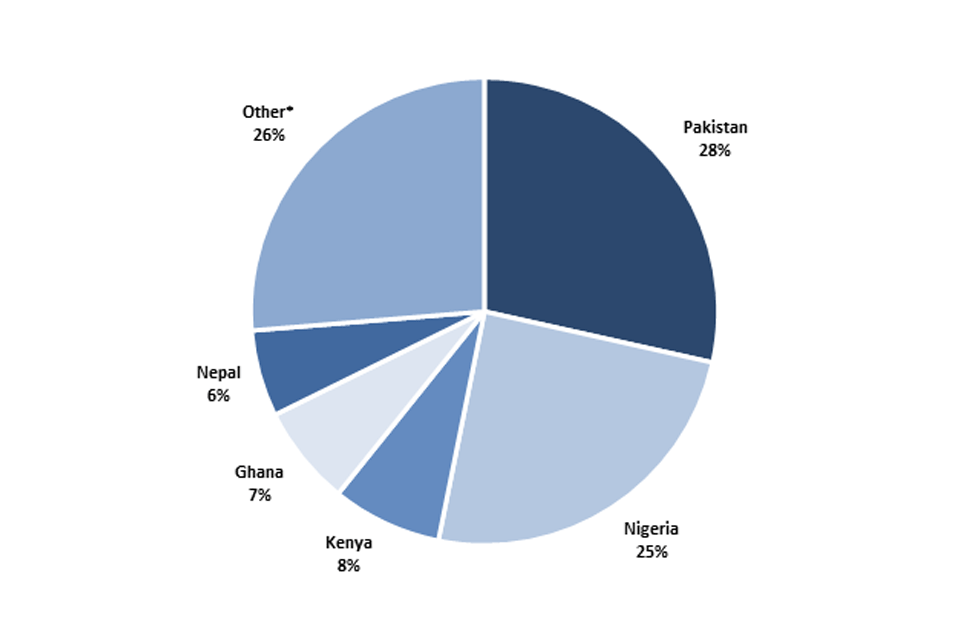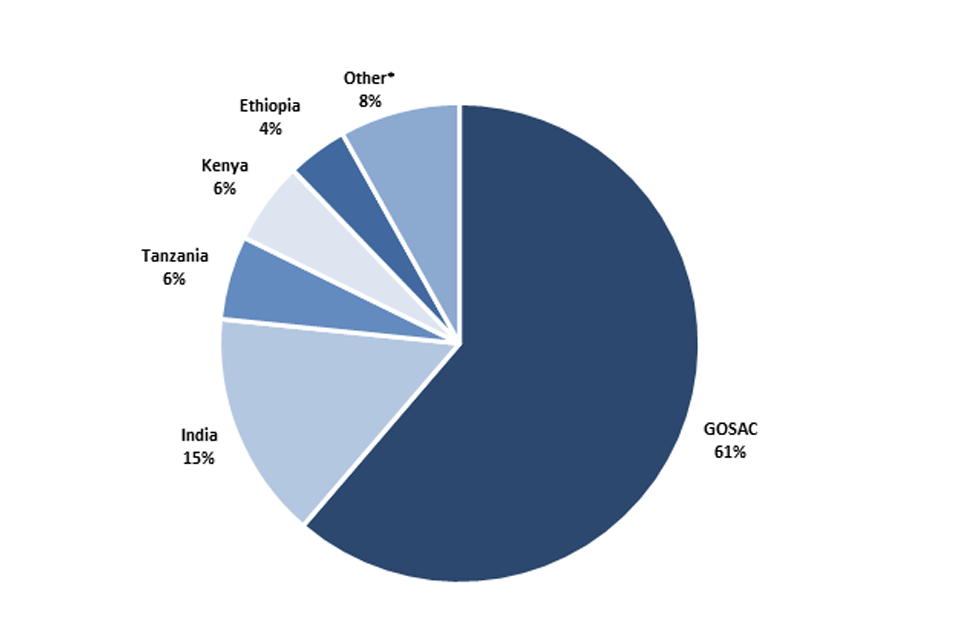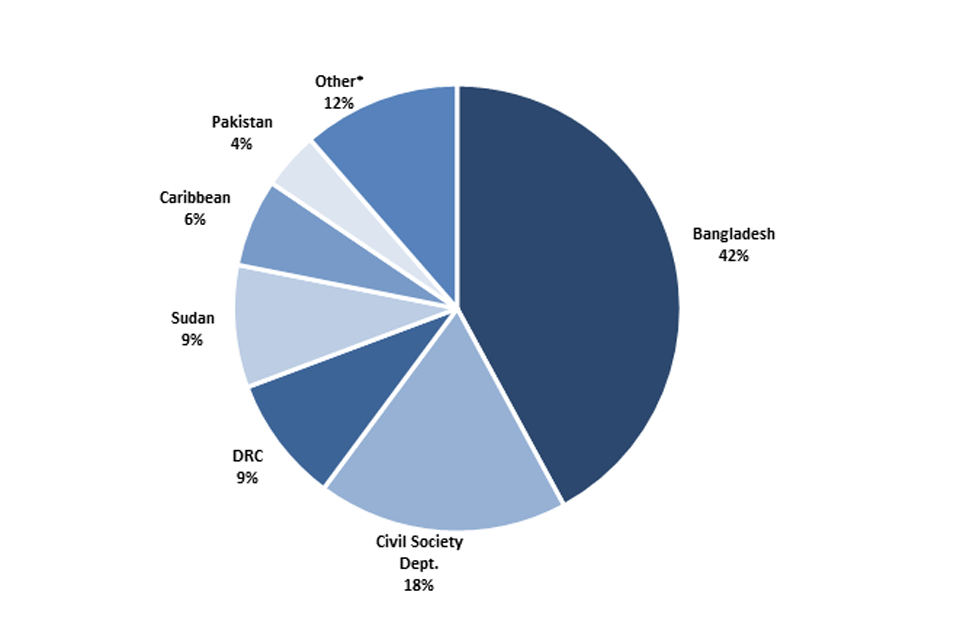DFID Annual Report and Accounts 2014 to 2015 Results achieved by sector: Governance and security
Published 16 July 2015
DFID will tackle the underlying causes of poverty by supporting strong and inclusive economic, social and political institutions and empowered citizens. Effective policing, a legal system that can be trusted, local services and the right to vote are among the key building blocks of any stable and prosperous society. They can support a country to educate its children, grow its economy and build its healthcare system. By supporting more governments to put effective, accountable governance and security institutions in place, we can help them meet their people’s needs. In the long term this means we are spending now to save later, as countries reach a point where they can stand on their own two feet. The importance of governance and security is recognised in the Millennium Declaration (September 2000):
We will spare no effort to promote democracy and strengthen the rule of law, as well as respect for all internationally recognized human rights and fundamental freedoms, including the right to development.
Despite the difficulty in measuring results in this area we can count some notable successes. For example, the large DFID programme supporting elections in Nigeria - which recently saw a peaceful transition of power - and the global BBC media programme that reaches over 60 million people with governance and accountability programming in Afghanistan, Bangladesh, Burma, Kenya, Nepal, Nigeria, Palestinian Territories, Sierra Leone and Tanzania. In Bangladesh, a security and justice programme has enabled over 4 million women and girls to have better access to legal services, resulting in more secure land tenure and better working conditions.
The importance of governance has risen to prominence recently with the proposed Sustainable Development Goals for 2015 to 2030 explicitly incorporating the measurement of progress in addressing conflict and building effective institutions.
1. DFID commitment
The results commitments relating to this sector were announced in the publication UK aid: Changing lives, delivering results and are as follows.
- we will support freer and fairer elections in 13 countries
- we will support 40 million people to hold authorities to account
- we will help 10 million women to access justice through the courts, police and legal assistance
In addition, the commitment on access to justice for women and girls is reiterated in DFID’s Strategic Vision for Girls and Women. The end date for each of the commitments is March 2015.
2. Indicators used to measure progress
- number of countries supported by DFID in freer and fairer elections
- number of people who vote in elections supported by DFID
- number of people supported to have choice and control over their own development and to hold decision makers to account
- number of women and girls with improved access to security and justice services through DFID support
3. Results achieved
By 2014-15 DFID had achieved the following results:
- 13 countries supported by DFID in freer and fairer elections, in which 162.1 million people voted
- supported 101.6 million people to have choice and control over their own development and to hold decision makers to account
- improved access to security and justice services for 10.4 million women and girls
There are 48 projects which support people to have choice and control over their own development and to hold decision makers to account. The support varies by context and includes building awareness among citizens on the services they should be able to expect from their governments, supporting people to meet and discuss issues with their elected representatives, and helping men and women to participate in community decision-making processes.
Bilateral programmes help to improve access to security and justice services for women by supporting nationally owned reform of security and justice institutions such as the police, prosecutions and the judiciary; increasing awareness and availability of community legal services; building partnerships between communities and service providers; and ensuring effective responses to violence against women and girls.
4. Progress towards DFID results commitments
Results achieved up to 2014-15 inclusive
| Indicator | Indicator type | Results Commitment | Male | Female | Not identified | Total |
|---|---|---|---|---|---|---|
| Number of countries supported by DFID in freer and fairer elections | Cumulative | 13 | N/A | N/A | N/A | 13 |
| Number of people who vote in elections supported by DFID | Cumulative | No specific target | 47,410,000 | 34,590,000 | 80,140,000 | 162,150,000 |
| Number of people supported to have choice and control over their own development and to hold decision makers to account | Peak year | 40,000,000 | 55,820,000 | 39,710,000 | 6,100,000 | 101,630,000 |
| Number of women and girls with improved access to security and justice services through DFID support | Peak year | 10,000,000 | N/A | 10,450,000 | N/A | 10,450,000 |
5. Results achieved by country/department
The elections with most voters have been in Pakistan (47 million) and Nigeria (40 million).
The single largest contribution (52 million) to the indicator on supporting people to have choice and control is from a project managed centrally by DFID’s Governance, Open Society and Anti-Corruption Department (GOSAC), and delivered by BBC Media Action. Those results are in turn delivered in Bangladesh, Burma, Kenya, Nepal, Nigeria, the Occupied Palestinian Territories and Sierra Leone.
In terms of girls’ and women’s improved access to justice and security, results have been achieved in a number of countries including Bangladesh, Sudan, the Caribbean, the Democratic Republic of Congo, South Sudan, Sierra Leone, Ethiopia, Pakistan, Nepal, Uganda, Zimbabwe and Somalia.
5.1 Number of people supported to have choice and control over their own development and to hold decision makers to account (by country/department)

Number of people voting in elections supported by DFID (by country/department)
5.2 Number of people supported to have choice and control over their own development and to hold decision makers to account (by country/department)

Number of people supported to have choice and control over their own development and to hold decision makers to account (by country/department)
5.3 Number of women and girls with improved access to security and justice services through DFID support (by country/department)

Number of women and girls with improved access to security and justice services through DFID support (by country/department)
6. Results achieved by multilateral organisations
There are no governance and security multilateral results indicators in level 2 of the DRF.
